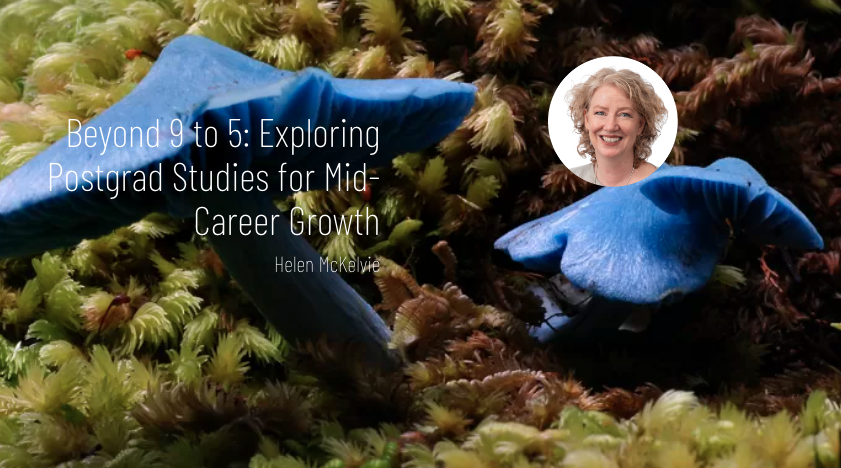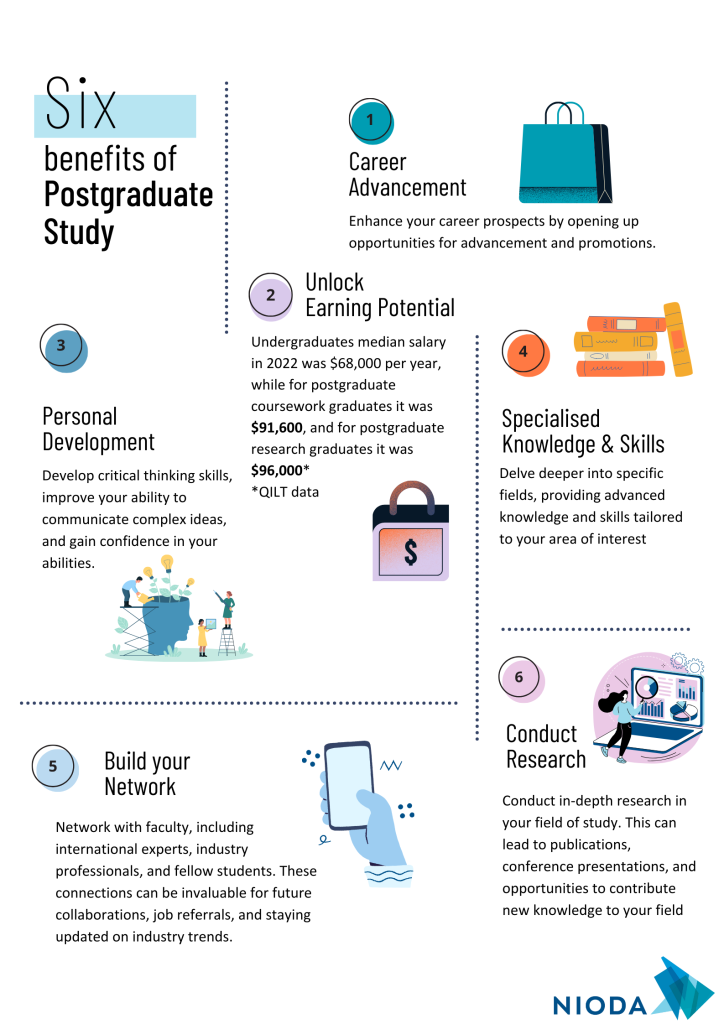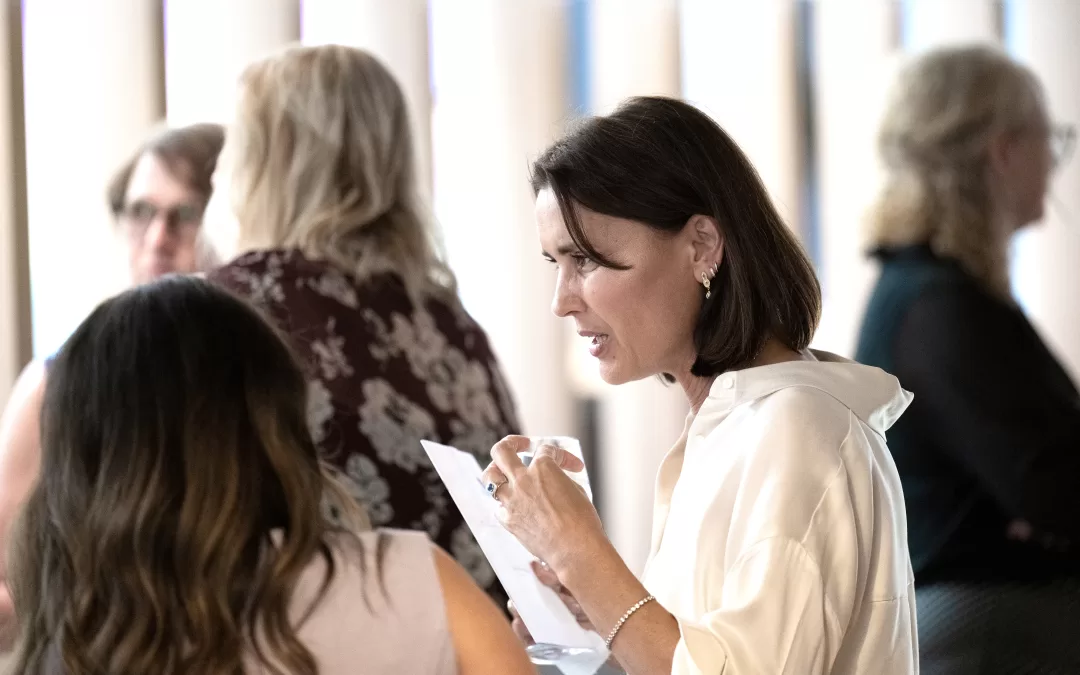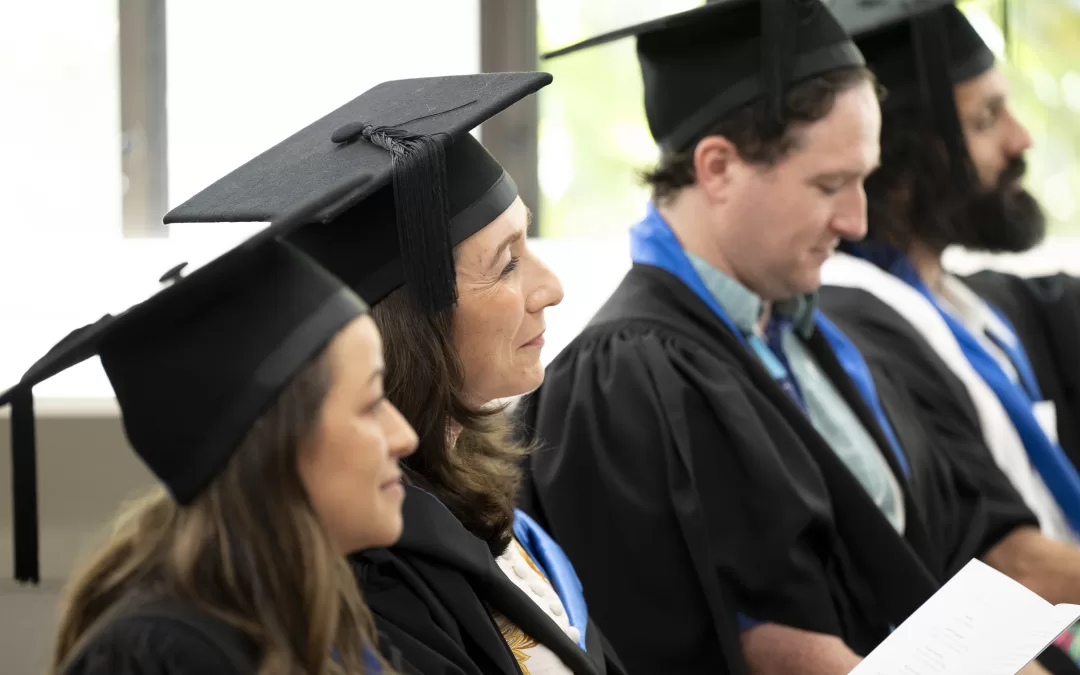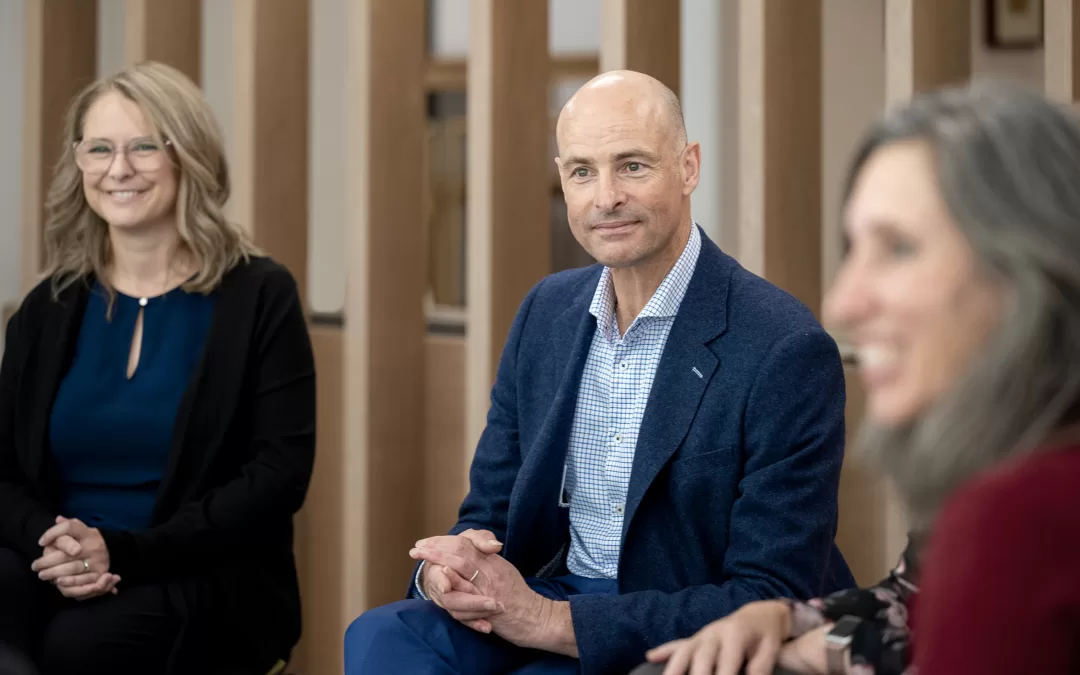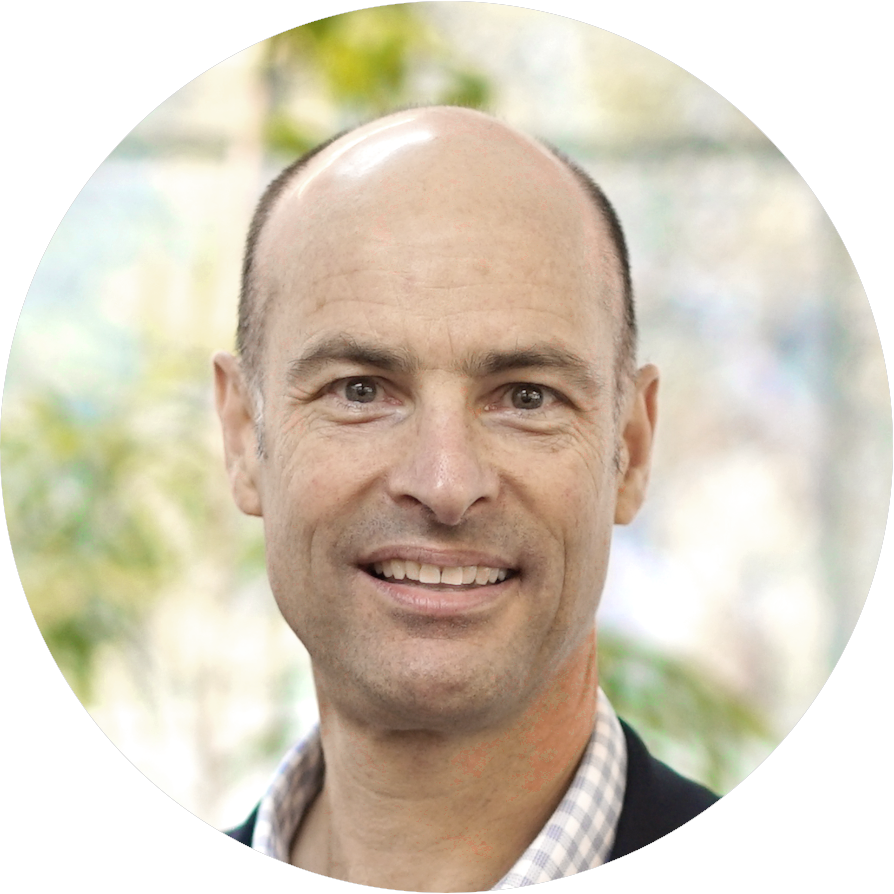A reflection of reality
NIODA has recently had a golden opportunity to experience and think about the trials of hybrid working. In late 2023 NIODA held its biennial group relations conference (GRC), titled Authority, Role, and Distributed Leadership in the Hybrid Workplace: the challenge of transforming experience. Dr Brigid Nossal, conference Director, made the call to run a hybrid event when initially establishing the conference parameters. ‘It is,’ she said, ‘how many of our workplaces now operate, including NIODA. If the conference is to support members to explore modern workplace reality it must be hybrid’. Hybrid working has become an expectation for most knowledge workers. Negotiation around it tends to be about the optimal proportion of days in the office and those working remotely. Studies of hybrid working report the benefits of the practice and comment on the likelihood that the hybrid workplace is here to stay (Bloom, n.d.). While it offers benefits – increased flexibility and employee control have been shown to contribute significantly to performance and retention (Davis et al. 2022) – there are also risks associated with this new way of working. Members and staff at NIODA’s 2023 GRC were well-positioned to explore the benefits, risks, and conscious and perhaps unconscious assumptions about hybridity across all conference events.
What is a Group Relations Conference?
For those not familiar with the format of a group relations conference, it is not what might be thought of as a typical conference where attendees listen to papers outlining research findings and their application. Rather, the learning is wholly experiential. The GRC is structured as a temporary learning organisation where members and staff are invited to engage in deep exploration of the experience of contemporary organisational life. As a learning technology, GRCs draw inspiration from psychoanalytic principles and systems thinking. They were invented by the Tavistock Institute in London in the 1950s and have continued to be held in the UK and across many countries throughout the world.
As an experiential event, the group relations conference is an opportunity to step out of the daily work-place merry-go-round of meetings, emails, and performance measures, to pause and consider questions such as what is really going on here? Are we actually working to the organisation’s purpose, if not, what is happening? Dr Nossal thinks of the GRC as an incubator for in-depth investigation of the world of work where it is possible to learn about the hidden assumptions both in oneself and others. A GRC is a place for conference staff and members to immerse themselves in issues and actions such as considering what it means to co-create safe workplaces, to proactively take up leadership role/s, and to discover what such immersion and exploration reveals about organisational life.
A hybrid working Group Relations Conference, a first
As the first GRC ever conducted in hybrid format, simultaneously onsite and online, staff and participants were able to explore how the technology and different modes of participation contributed to the dynamics of the conference as a temporary learning organisation. The majority of conference members (32) began the conference onsite, ten members were online. Seven onsite and one online staff member worked with participants through all conference events. The hybridity of the conference was front and centre from the very beginning. During the opening plenary, for example, members struggled to engage across the technological boundaries. Some of this was the physical location of the technology (what could it ‘see and hear’?), some of it was software settings (was the background noise all that it was picking up?), some of it was an expectation that all could be seen and heard with crispness and clarity regardless of seating position, volume of voice, vagaries of acoustic reality, location of speaker (flesh and blood or mechanical) or screen. The real initial technical difficulties worked to undermine the authority of conference staff to manage ‘technology as territory’. This underlines the seemingly self-evident importance of having fit-for-purpose technology and the easy availability of technical support for any hybrid working arrangements; we were also interested in the unconscious, or not so self-evident, factors.
Complexity in establishing a hybrid territory
The boundaries of time, task and territory are intended to be firmly held during a GRC. For example, being clear that task A occurs between the hours of B & C, in room D, is understood to assist in creating the kind of working environment required for all to be fully present and engage with the work. Each event or part of a conference has a clearly identified room or rooms (territory) set aside for it. In a purely onsite conference or workplace we must physically cross the boundaries, walk through a doorway, enter or exit a building, to be present and participate in the task. In a hybrid event, technology creates new parts of the territory boundary. It’s easy, you think, to ‘make sure the technology is in the right room at the right time, and switch it on,’; the territory is available. True, to an extent. If you are responsible for the event, however, have you thought through the myriad permutations of possible issues such as background noise, multiple pieces of technology needing to interact, best placement of devices, unstoppable software updates? Establishing hybrid territory is complicated. Whilst initial difficulties with establishing optimal territory boundaries left a dent in members’ confidence in the ability of staff to manage them, they also provided opportunities for conference members to take up leadership to innovate and problem-solve in the moment. Like many innovations these efforts felt both energising and disruptive; as in many workplaces, this showed up the need for management flexibility and adaptability to harness the benefit of the innovations.
Hybrid territory and liminal space
In some ways hybrid territory has qualities of a liminal space – that sense of inbetweeness created by the additional technology and physical boundaries and their management and the need for participants to transition within and between them. There is a familiarity in the workplace relating to the use of technology. Many would have experience with the meaning and conflict that groups can place into IT systems that exist in the liminal space between workgroups to manage workflows and processes. Most of us will, at some time, have heard some proprietary system or another disparaged for its awfulness or how it limits something or another from occurring. What is not so easily spoken about in this context is the consideration for the individuals and teams who made and shaped these systems now so maligned. What occurs so often is that without resolving the actual existing conflicts and tensions between the human parts of a system, all of that conflict and tension gets ‘designed in’ to the IT system, with the added advantage of now providing a convenient object to be blamed in this liminal space between the groups.
In the context of the GRC, where one of the core processes that can be observed is participants finding ways of relating to each other in this new setting, the hybrid nature of the conference, via the technology, filled the liminal space with a convenient object to be blamed for the difficulties of relating. There are always any number of real and perceived identities that complicate states of relatedness in groups. At this GRC, this core difference of virtual/remote was, across the first day in particular, a very convenient difference to focus on. In this instance, there was the added ‘advantage’ for members, of the staff being able to be very directly blamed for having created this difference due to avoidable technical issues experienced on the first day.
Building connection in the hybrid environment
Throughout the conference, members engaged with each other via technology in creative ways. In taking up the authority every person had in their role as conference member or staff, various solutions were attempted and found, to issues such as crossing virtual territory boundaries and building relationships across working modes. One onsite member, for example, took it upon themselves to take interested online members on a tour of the conference venue. Walking those online around the buildings and grounds was identified as a very useful way for those online to feel more involved in and engaged with other members and the conference as a whole.
Increasing connectedness, virtual, relational, and task-focused, no doubt improved the experience for many members and thus supported depth of learning. However, the conference staff also hypothesised that the preoccupation with technological issues that developed within the conference precluded a deeper exploration of other issues such as race, gender, sexuality and generational change, that were also alive in the conference dynamics. That is, they were barely explored. Instead, this preoccupation with technology was a receptacle for member anger, frustration, perceptions of staff incompetence and inequitable (online) member access. Although present, the other important issues of identity that impact on organisational culture, even in such a temporary organisation as a GRC, were marginalised. The lack of work being done to think about them seemed to result in a few members becoming receptacles for the related intolerable feelings. As ‘receptacles’, these members held and experienced heightened levels of anger and frustration for the whole conference membership. This formed part of the unconscious layer of experience that is also open for examination in a GRC. The potential for these unconscious dynamics to undermine or derail individuals and work groups in the GRC or in any workplace underscores the value in making time and space for reflecting on and processing the feelings that are inevitably stirred up when people, with all their differences, come together to take on a task. Instead, the conference helped us see that technology as a ready source of discontent in the hybrid workplace may create an effective distraction from this difficult but rewarding work.
The conference staff were left with many thoughts and questions about the hybrid experience. These are relevant not only for how we might run another hybrid GRC, but also for how all staff and managers think about, and work within, their hybrid workplaces. A few early thoughts are noted below, we welcome discussion about them.
Thoughts and questions we’re thinking about after the conference:
- As those responsible for a hybrid event, we must maintain a higher order of awareness of issues relating to boundary management. Particularly by paying attention to the ways in which the functionality of technology now plays a significant role in establishing the quality of the ‘territory’ or working environment.
- As leaders and managers, how do we support our staff to take up their authority for finding creative solutions to the new boundary management issues created by hybrid work and technology, and when they do, how do we acknowledge them appropriately?
- When working remotely, it can be all too easy to abdicate our authority, to disengage, to stay ‘outside’ the meeting or event, and to then focus on management and/or the technology for a poor quality or unsafe workplace or meeting. Is this simply a matter of establishing strong boundaries? What might we do to encourage and support people to take up their authority for the quality of their engagement?
- We note the increasing expectations of staff for psychologically ‘safe’ workplaces. While this is a crucial remedy for truly toxic work cultures, within the GRC learning organisation, the plea for safety became an easy way to avoid the sometimes confronting experience of exercising one’s own authority for the creation of the workplace culture as it unfolds. It was as if some members believed that they had no ability or responsibility to do so. How can leaders and managers support their staff to see themselves as active co-creators of workplace culture and not just passive recipients of it?
- How do we support our managers to build the necessary mental muscle to withstand the blame and other judgements and emotions projected onto them?
What are your thoughts and reflections about hybrid working?


